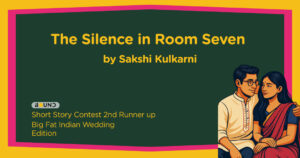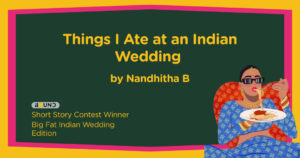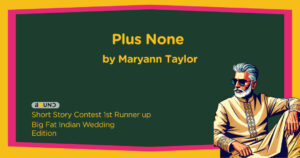Dear Rosa Diaz,
I first met you in quarantine.
The world outside had come to a stop, but inside, everything was falling apart. I was mourning the loss of people I loved. The pain wasn’t loud or theatrical. It was still and heavy. It lived in the silence of every room. I turned to Brooklyn Nine-Nine looking for a distraction, something light-hearted to carry me through. I wasn’t expecting to find someone who would meet me where I was.
You appeared on my screen in a leather jacket, with a deadpan stare and a no-nonsense voice. Suddenly, I felt seen.
At that time in my life, I was too caught up in my grief to focus on my queerness. It felt far away, like something I would deal with later. But there you were, not asking for anyone’s approval, not explaining yourself. You didn’t soften your edges for anyone’s comfort. You were queer, and that was just a fact. Not a confession. Not a performance. Just a truth that existed.
You showed me that I didn’t have to shout about who I was to be valid. I didn’t need to stage a big reveal or plead with the people I love to understand me. I could just be.
That was the first time I let myself think: maybe I could do the same.
Watching you come out to your parents and colleagues was messy, imperfect, and exactly what I needed.
You didn’t bare your soul to everyone. You didn’t perform your identity for applause. You chose who to tell, when to tell them, and how much to say. That choice, that control, felt incredibly familiar. I have never been the kind of person who announces every chapter of my life to the world. My queerness wasn’t something I wanted to turn into an announcement. I wasn’t hiding. I just didn’t want to explain myself to the world.
And then there was you. Quietly sure of yourself. Brave in your own way. You reminded me that I wasn’t broken for not wanting to talk about everything.
In a show that had every reason to play your identity for drama, it didn’t. Brooklyn Nine-Nine let you be. It gave you space to exist, without turning your bisexuality into a plot twist. And maybe that’s what made it hit harder — the quiet normalcy of it. You were a detective first, a badass always, and bisexual somewhere in between, never reduced to just one thing. All of it existed together, without fuss.
Your queerness wasn’t a spectacle. It wasn’t a punchline. It just was.
And in that quiet recognition, I found my own.
You weren’t the kind of crush that made my heart race in the usual way. It was slower. Quieter. Like admiration settling into something deeper.
Liking you wasn’t about wanting to be with you. It was about wanting to be like you. I loved the way you walked into a room and didn’t ask for permission to take up space. You weren’t there to impress anyone.
You existed fully, without apology. And that, to someone like me, was magnetic.
You made me think differently about what it means to be strong. People often talk about strength as something loud and bold. But your strength was the kind that showed up in silence. In boundaries. In stillness. You didn’t need to explain why you were the way you were. You just were.
You never made yourself soft to be understood. You stayed sharp. And still, the people who mattered found a way to love you.
Maybe that was the hope I didn’t know I was looking for — that someone like me could be loved too, even with the walls still up.
You didn’t save me. You weren’t some sudden light breaking through the darkness. It wasn’t that cinematic.
But you were steady. Like a streetlight you don’t notice until it’s the only thing still glowing on a quiet road.
I had grown used to queerness in media arriving with fireworks or sorrow. It was either loud and colourful, asking to be clapped for, or steeped in tragedy, begging to be mourned. But you were neither. You were the quiet in-between. A stillness that did not ask for a reaction.
You reminded me that it’s enough to exist truthfully in your own body, on your own terms. Even if the world never claps for it. Especially then.
You were not a revolution. But you were mine.
Sometimes I wonder what it would be like to sit across from you. I probably wouldn’t say much. You probably wouldn’t either. But maybe we’d understand each other anyway. Two people who don’t offer themselves easily, but still feel everything. Two people who live with their guard up, but love just as hard underneath it.
You weren’t written to be a saviour, but you ended up saving something in me. Not the loud parts. The soft, tired, grieving parts that didn’t want to be seen. You saw them anyway.
So thank you.
For not explaining yourself.
For showing me I didn’t have to either.
For giving a version of queerness that didn’t ask to be held gently, but still deserved to be.
And for reminding me that being myself, quietly, stubbornly, without permission, is a kind of love too.
With everything I never said,
Abhigya








